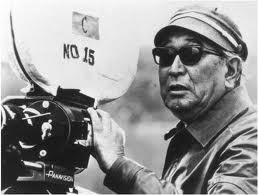Is a work of Art (and/or the process of making Art by an Artist) a form of scholarship and scholarly research?
The short response to the question is “yes, sometimes.†When an artist is able to reflect, articulate, and contextualize their art work, then “yes, work in Art is a a form of scholarship and scholarly research.†However, wait, not so fast. It’s not that easy. The question is either hotly debated or flippantly dismissed.

The depth, scope, and nature of work being done by artists, including those artists who are teaching in academic settings, compel the question to be repeated, albeit somewhat differently and more generally, “what constitutes scholarship and scholarly research?†Myself, as a teacher, filmmaker, and writer, I advocate for a new paradigm about the scope and nature of scholarship and scholarly research. In my blog, I plan to explore this question and many other questions concerning creativity, teaching, paradigmatic issues affecting teachers, alternative approaches to learning and expression, and other matters of theoretical and practical importance that are relevant to teachers, artists, students, and academic administrators. It is my intention to write and facilitate a first step in a process of critical analysis, dialogue, and change, not to pontificate with singular, final answers that attempt to end the debate.

In response to the initial question that I have posed–is work in Art a form of scholarship and scholarly research?—I imagine there are scientists and other advocates of convention and status quo in academic settings who are shuddering in horror at the thought that a work of Art could be considered as a form of scholarship and/or scholarly research. The conventional view considers Art and works of Art as residing in opposition to the priorities of science and scientific research, and in direct contradiction to the scientific method. The conventional view is that Art and works of Art are emergent from personal, inherently ambiguous, and relatively unscientific roots; and are situated outside and in contrast (in opposition?) to conventional forms of scholarship and scholarly research. The conventional paradigm that dominates higher education settings narrowly insists upon text publication and the verification of results as the only measures of what constitutes scholarship and scholarly research. Meaningful discussion about Art and works of Art being considered as a form of scholarship will be met with resistance by advocates of convention and the status quo.

Art and works of Art involve the theoretical study and practical application of skills and knowledge in painting, drawing, filmmaking, musicology and musicianship, photography, theater, sculpture, architecture, digital media, printmaking, creative writing in many forms, and many other areas of creative scholarship. Works of Art that emerge from those areas can reasonably be described as a form of praxis, an integration of theory and practice.
An artistic work is distinct from conventional forms of scholarship and scholarly work (for example, in the sciences) because it does not necessarily follow a pre-determined process nor does it necessarily adhere to expectations about final output. A work of Art is also not dependant upon verification as a measure of its value. Art and works of Art will usually prioritize self, in contrast to scholarship and scholarly work that follows the conventions of scientism. There will inevitably be some folks who may like or understand or value a particular work of Art, and there will certainly be some who may not.

Consensus of opinion and verifiability of the final result are not necessarily prioritized in Art or in work by artists. A work of Art does emerge from some form of personal inquiry by the artist, and is mostly concerned with the creative application and integration of techniques, self-reflection, and personal knowledge.
Work output in the Arts is done in the pursuit of creative and innovative expression of ideas, emotions, and intentions that cannot be conveyed through conventional or everyday language.

Critical thought and new conceptual notions about alternative forms scholarship and scholarly research are emerging worldwide, throughout many corners of academe, and this action will revitalize, inform, and contribute to greater knowledge and understanding in all fields of study.
If a diverse research environment and holistic paradigm will be encouraged throughout institutions of higher learning, then conventional researchers in the sciences could find themselves to be inspired, informed, and empowered to work more creatively, and perhaps collaboratively, in the pursuit of alternative paths. In this way, innovative or alternative forms of scholarship and scholarly research could emerge and resonate meaningfully, as new works of knowledge. The initial goal is to establish a confident, respected place for Art and Art-based knowing alongside conventional notions of scholarship and scholarly research, with the inclusion of Art and the making of Art by teachers and other colleagues who co-exist in the ivory towers of academic institutions.